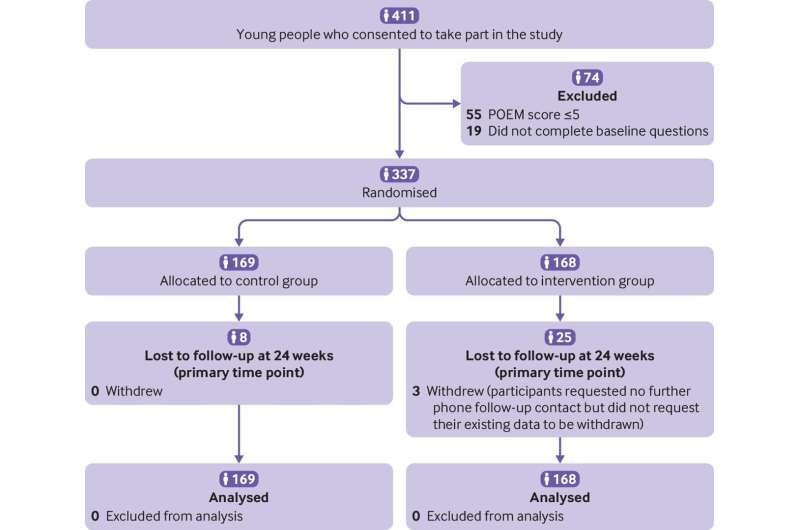
A website developed by the University of Southampton to help people manage their eczema has led to a reduction in symptoms and improved outcomes for children and young people.
Eczema is very common and can have a substantial impact on quality of life and costs to the NHS. Treatment can be complex and many people with eczema, and their caregivers, say that they receive insufficient or conflicting advice about how to use eczema treatments.
Miriam Santer, Professor of Primary Care Research at the University of Southampton and lead author of the study said, “Eczema can be a debilitating condition for so many people, especially children and young people.
“This website gives both patients and clinicians evidence-based resources that have been shown to improve symptoms.”
The website, www.EczemaCareOnline.org.uk, was designed to support young people with eczema and parents or caregivers of children with eczema to self-manage the condition. It provides information on what eczema is, how to use eczema treatments, how to avoid potential trigger factors that might make the eczema worse, and support for living well with eczema through videos and written resources.
In the study, published in the BMJ, 650 participants were given access to the website in addition to usual care, or received usual care alone from a clinician. Participants who accessed the website were shown to have improved symptoms after six months and those improvements continued for another six months, compared to those who received usual care alone.
https://www.youtube.com/embed/za31Y5MNw3c?color=whiteCredit: University of Southampton
Not only did the study monitor their symptoms, but it also asked for feedback on the website, which was very positive.
One participant said, “It was one of the best websites I’ve ever used; it was really easy to use and provided the answers to your specific questions. I didn’t have to read through lots of stuff that wasn’t relevant to me.”
The researchers say that empowering parents and young people to take ownership of the condition can lead to sustained positive clinical outcomes at an affordable cost and have made the resource free to use for anyone.
Professor Miriam Santer said, “Unfortunately, health professionals often don’t have enough time to go into all the details about how to look after eczema and people with eczema and their families often report they have been given insufficient information about the condition and how to manage it.
She added, “We hope that the website will be rapidly rolled out within the NHS to provide effective help for eczema without causing extra workload for staff.”
University of Southampton

